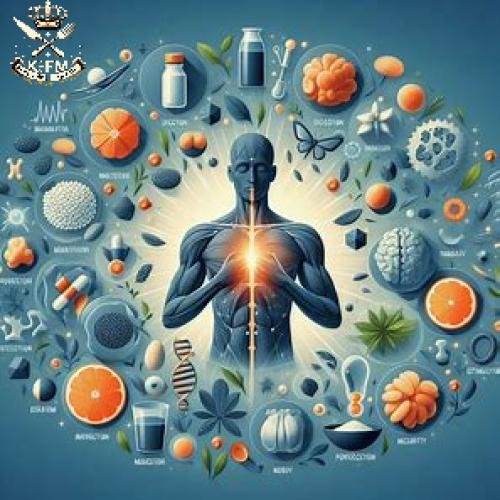Stomach bloating and the presence of gas are common health issues that affect many people daily. Many people experience abdominal pain and a feeling of fullness due to the accumulation of gas in the digestive system. This problem can affect the quality of daily life and cause discomfort. In this article, we will discuss the causes of this problem, its accompanying symptoms, available treatments, and tips that can be followed to prevent this condition.
Causes of Stomach Bloating and Gas
There are several reasons that lead to the feeling of bloating and the presence of gas in the stomach, including the following:
Diet:
Gas-producing foods: Some foods are the main cause of gas production. Prominent examples include broccoli, cabbage, beans, lentils, legumes, and cabbage. These foods contain complex sugars that are not fully digested in the intestines, leading to fermentation by bacteria and gas production.
Carbonated drinks: Carbonated drinks, such as soda and other soft drinks, contain carbon dioxide gas, which causes gas accumulation in the stomach.
Dairy: People with lactose intolerance may have difficulty digesting dairy products, causing gas and bloating.
Fatty foods: Foods rich in fats delay digestion, contributing to the feeling of bloating.
Digestive Disorders:
Irritable Bowel Syndrome (IBS): This is a common condition that leads to disturbances in bowel movements, causing bloating, diarrhea, or constipation, as well as increased gas.
Lactose intolerance: Individuals with lactose intolerance find it difficult to digest foods containing milk or its derivatives, leading to gas accumulation.
Small Intestinal Bacterial Overgrowth (SIBO): This is a condition where bacteria grow excessively in the small intestine, leading to gas production.
Daily Habits:
Smoking and chewing gum: Smoking and chewing gum increase air swallowing, leading to more gas in the stomach.
Drinking through a straw: Drinking liquids through a straw can cause air swallowing involuntarily.
Medications:
Some medications, such as antibiotics and pain relievers, may affect digestion and lead to increased gas, especially if they cause an imbalance in the bacterial flora of the intestines.
Other Medical Conditions:
Bowel disorders: Some diseases, such as Crohn's disease or ulcerative colitis, may cause gas buildup due to intestinal inflammation.
Food allergies: Allergies to certain foods, such as wheat or eggs, may cause digestive issues, including gas and bloating.
Psychological Factors:
Stress and anxiety: They have a significant effect on the digestive system. During stress, the intestines may become irritated, which increases gas production.

Symptoms Associated with Stomach Bloating and Gas
The symptoms associated with stomach bloating and gas include:
Feeling of fullness: The patient may feel full in the stomach even after eating small amounts of food.
Abdominal pain: The person may experience pain or cramping in the abdomen due to gas accumulation.
Excessive burping: When swallowing air, the person may experience frequent burping, which increases feelings of embarrassment.
Heaviness: The person may feel uncomfortable in the stomach due to accumulated gas.
Constipation or diarrhea: Some individuals may experience digestive disturbances such as constipation or diarrhea alongside gas.
Diagnosis of Stomach Bloating and Gas
This condition is diagnosed through:
Medical history: The doctor starts by asking about the patient's symptom history and health history.
Physical examination: The abdomen is examined to check for any lumps or other problems.
Laboratory tests: Some tests may be required, such as stool analysis, blood tests, or endoscopy (colonoscopy).
Food tests: The doctor may request a test to check for food allergies or intolerances, such as lactose or gluten.
Available Treatment for Stomach Bloating and Gas
Several methods are available to manage this issue, including:
Dietary changes:
Reduce gas-producing foods: It’s best to reduce the intake of foods that contain complex sugars and fatty foods.
Gradually increase fiber-rich foods: Eating foods high in fiber, such as vegetables and fruits, helps improve digestion and reduce gas.
Drink plenty of water: Drinking water helps facilitate digestion and prevent gas buildup.
Medications:
The doctor may prescribe medications such as antacids or prokinetic drugs like lactase for those with lactose intolerance.
Some medications like digestive supplements or anti-anxiety medications can also be used.
Natural Remedies:
Herbs: Certain herbs like mint, fennel, and ginger are effective in reducing gas and soothing the digestive system.
Yogurt: Yogurt contains probiotics that support the growth of beneficial bacteria in the intestines, helping improve digestion and reduce gas.
Behavioral Treatments:
Techniques like yoga and meditation help reduce stress, which may affect the digestive system.
Cognitive Behavioral Therapy (CBT): Helps modify eating behaviors or psychological stress that contribute to increased gas.

Prevention of Stomach Bloating and Gas
Some tips can help prevent this issue:
Eat Small, Frequent Meals: Instead of large meals, it's better to have smaller meals throughout the day to facilitate digestion.
Exercise: Physical activity improves bowel movement and reduces gas.
Manage Stress: Relaxation techniques can help reduce the impact of stress on the digestive system.
Drink Water: Keeping hydrated helps facilitate digestion and prevent bloating.
Recipes to Help Treat Colon Bloating:
Here are some examples of recipes that can help alleviate stomach bloating and improve overall health:
1. Ginger and Honey Recipe
Description: A warm drink made with ginger and honey, which helps soothe the stomach and reduce gas.
Ingredients:
1 teaspoon of grated ginger
1 teaspoon of honey
1 cup of warm water
Benefits and Vitamins:
Ginger contains antioxidants that help improve digestion and reduce inflammation.
Honey acts as an antibacterial agent and helps soothe the digestive system.
Ginger is rich in Vitamin C and Vitamin B6.
Honey contains Vitamins A and C.
2. Fennel and Cumin Recipe
Description: A drink made from fennel and cumin that helps speed up digestion and relieves bloating and gas.
Ingredients:
1 teaspoon of fennel seeds
1 teaspoon of cumin seeds
1 cup of boiling water
Benefits and Vitamins:
Fennel contains antispasmodic properties and supports digestion.
Cumin helps increase digestive enzyme secretion and reduces gas.
Fennel is rich in Vitamin C and B6.
Cumin is high in iron and magnesium.
3. Caraway and Anise Recipe
Description: A mixture of caraway and anise helps soothe the stomach and reduce bloating.
Ingredients:
1 teaspoon of caraway seeds
1 teaspoon of anise seeds
1 cup of boiling water
Benefits and Vitamins:
Caraway contains antispasmodic compounds and helps accelerate digestion.
Anise contains anti-toxins and improves intestinal movement.
Caraway is rich in Vitamins B and C.
Anise contains Vitamins A and C.
Frequently Asked Questions
Can stomach bloating be a sign of a serious illness? In most cases, bloating is caused by harmless factors like food or stress. However, if bloating is persistent or accompanied by other symptoms like weight loss or blood in the stool, you should consult a doctor.
Are there foods I should avoid? Yes, you should avoid foods that contain complex sugars, fatty foods, carbonated drinks, and dairy if you suffer from lactose intolerance.
Do habits like smoking or drinking alcohol affect gas production? Yes, smoking and drinking alcohol can increase gas production in the intestines.
Conclusion
Stomach bloating and gas are common issues, but they can significantly affect daily comfort. By understanding the potential causes of this condition and making some changes in diet, exercising, and managing stress, symptoms can be effectively reduced. If the problem persists or is severe, it is advisable to consult a doctor to determine the appropriate treatment.
Note: This article is for general guidance and does not replace professional medical advice.




















